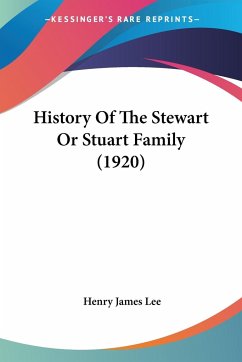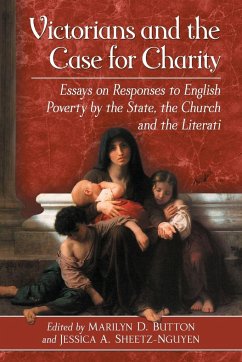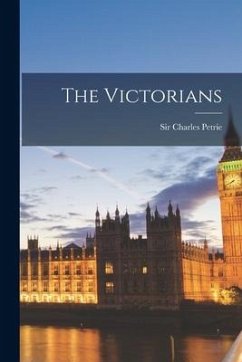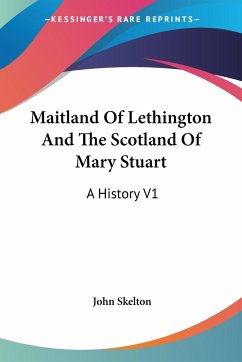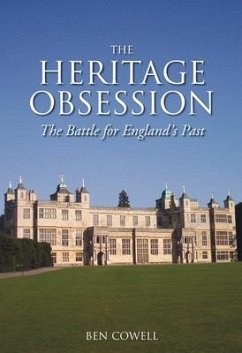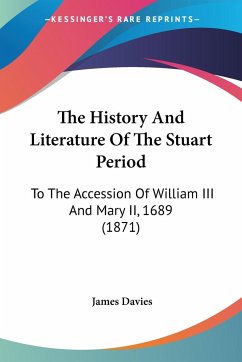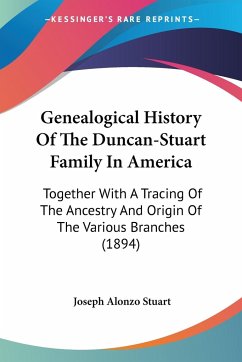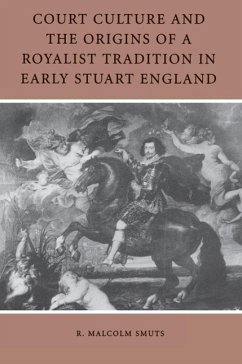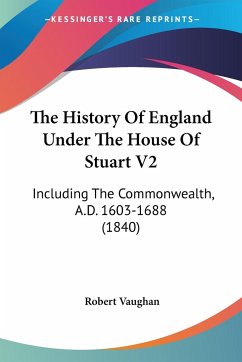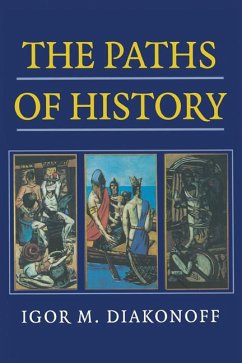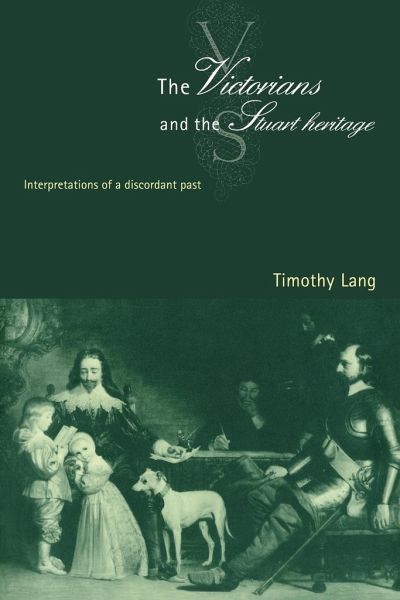
The Victorians and the Stuart Heritage
Interpretations of a Discordant Past

PAYBACK Punkte
21 °P sammeln!
An exploration of how leading Victorian historians interpreted the Stuart past and the era of Cromwell.This book explores what the Victorians said about the Stuart past, with particular emphasis on changing interpretations of Cromwell and the Puritans. It analyses in detail the historical writings of Henry Hallam, Thomas Babington Macaulay, Thomas Carlyle and Samuel Rawson Gardiner, placing them in a context that stresses the importance of religious controversy for the nineteenth century. The book argues that the Victorians found the Stuart past problematic because they perceived a connection ...
An exploration of how leading Victorian historians interpreted the Stuart past and the era of Cromwell.
This book explores what the Victorians said about the Stuart past, with particular emphasis on changing interpretations of Cromwell and the Puritans. It analyses in detail the historical writings of Henry Hallam, Thomas Babington Macaulay, Thomas Carlyle and Samuel Rawson Gardiner, placing them in a context that stresses the importance of religious controversy for the nineteenth century. The book argues that the Victorians found the Stuart past problematic because they perceived a connection between the religious disputes of the seventeenth century and the sectarian discord of their own age. Cromwell and the Puritans became an acceptable part of the national past only as the English state lost its Anglican exclusiveness. The tendency to accommodate Cromwell and the Puritans, particularly in the work of Gardiner, thus reflected a process of nation building that sought to remove sectarian divisions and which reached its climax as the Victorian age came to its close.
Review quote:
"...a perceptive and nuanced study of the manner in which successive generations of nineteenth-century historians interpreted the Puritan Revolution....[a] richly textured intellectual history."
American Historical Review
"...he [Lang] charts a course through a broad sea of biographical, intellectual, and historical particulars from the seventeenth through late nineteenth centuries without losing his readers' attention....a useful addition to any undergraduate library's history collection."
Dorothy-Bundy Potter, History
"This remains a valuable scholarly study, showing how one period of the past used another more distant past to forge its own identity."
Doris Goldstein, Albion
"Lang can congratulate himself on having added a stimulating and informative study to the historiography of Victorian historiography. He reminds us of the manner in which the preoccupations of an era's leaders appeal to the past for legitimation. Such studies become hazardous only if they imply-as Lang's does not-that all works of history are equally condemned tp present-mindedness and if they deny that products of the painstaking as well as empathetic scholarship of earlier centuries may retain permanent value as foundation stones on which successors may build."
Walter L. Arnstein, Victorian Studies
Table of contents:
Preface; Acknowledgments; Introduction: politics, religion and history: David Hume and the Victorian debate; 1. Henry Hallam and early nineteenth-century Whiggism; 2. Thomas Babington Macaulay and Victorian religious controversy; 3. Puritanism and the ideology of dissent; 4. Samuel Rawson Gardiner and the search for national consensus; 5. Cromwell and the late Victorians; Epilogue: Beyond the Victorians; Index.
This book explores what the Victorians said about the Stuart past, with particular emphasis on changing interpretations of Cromwell and the Puritans. It analyses in detail the historical writings of Henry Hallam, Thomas Babington Macaulay, Thomas Carlyle and Samuel Rawson Gardiner, placing them in a context that stresses the importance of religious controversy for the nineteenth century. The book argues that the Victorians found the Stuart past problematic because they perceived a connection between the religious disputes of the seventeenth century and the sectarian discord of their own age. Cromwell and the Puritans became an acceptable part of the national past only as the English state lost its Anglican exclusiveness. The tendency to accommodate Cromwell and the Puritans, particularly in the work of Gardiner, thus reflected a process of nation building that sought to remove sectarian divisions and which reached its climax as the Victorian age came to its close.
Review quote:
"...a perceptive and nuanced study of the manner in which successive generations of nineteenth-century historians interpreted the Puritan Revolution....[a] richly textured intellectual history."
American Historical Review
"...he [Lang] charts a course through a broad sea of biographical, intellectual, and historical particulars from the seventeenth through late nineteenth centuries without losing his readers' attention....a useful addition to any undergraduate library's history collection."
Dorothy-Bundy Potter, History
"This remains a valuable scholarly study, showing how one period of the past used another more distant past to forge its own identity."
Doris Goldstein, Albion
"Lang can congratulate himself on having added a stimulating and informative study to the historiography of Victorian historiography. He reminds us of the manner in which the preoccupations of an era's leaders appeal to the past for legitimation. Such studies become hazardous only if they imply-as Lang's does not-that all works of history are equally condemned tp present-mindedness and if they deny that products of the painstaking as well as empathetic scholarship of earlier centuries may retain permanent value as foundation stones on which successors may build."
Walter L. Arnstein, Victorian Studies
Table of contents:
Preface; Acknowledgments; Introduction: politics, religion and history: David Hume and the Victorian debate; 1. Henry Hallam and early nineteenth-century Whiggism; 2. Thomas Babington Macaulay and Victorian religious controversy; 3. Puritanism and the ideology of dissent; 4. Samuel Rawson Gardiner and the search for national consensus; 5. Cromwell and the late Victorians; Epilogue: Beyond the Victorians; Index.





